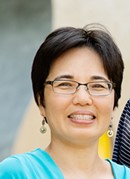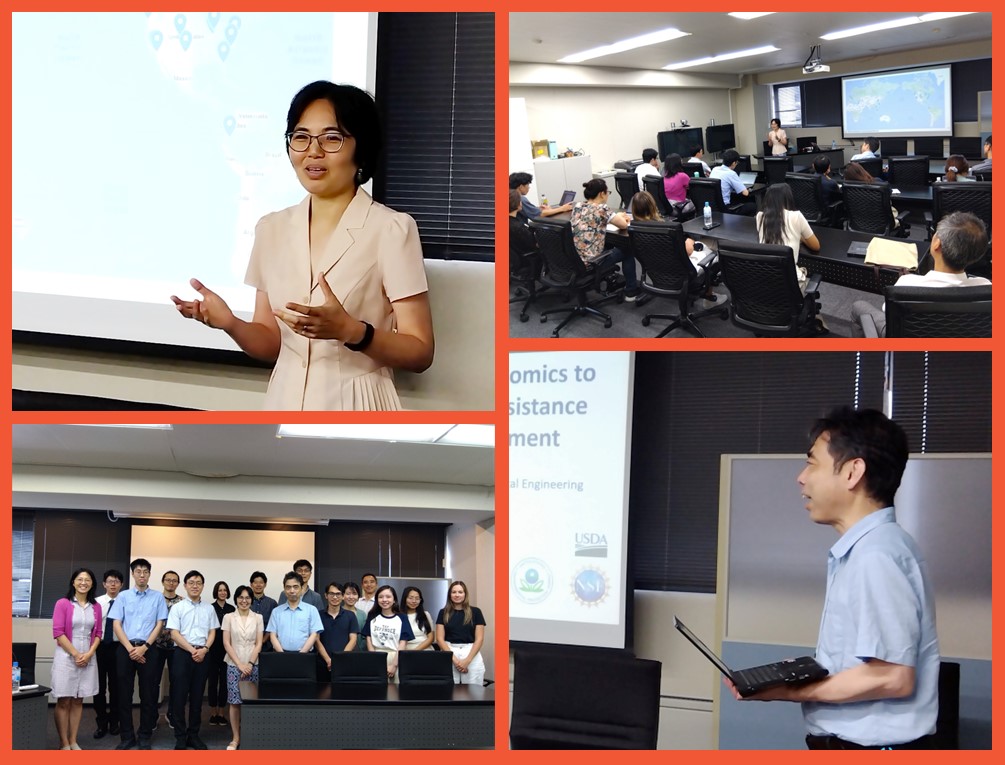RECWET Special Seminar Series #59

Date and Time: 12:45-13:45, July 2 (Tue) 2024
Place: Meeting Room 802 (8F, Engineering building 14)
'Harnessing the power of genomics to understand antimicrobial resistance emergence in the environment'
By: Thanh H.(Helen) Nguyen
Ivan Racheff endowed Professor of Environmental Engineering,
University of Illinois at Urbana-Champaign
University profile Google Scholar

Antibiotic resistance (AR) is a “silent pandemic” that poses a global threat to human and animal health, as well as threats to food safety and security, crop-based fuel production, and the environment. The emergence of resistance is accelerated by the widespread overuse of antibiotics in both clinical and agricultural settings. Yet, the emergence of resistance is almost exclusively monitored in acute hospital settings and misses the long-term and invisible evolution and spread of antibiotic resistance in agriculture and the environment. There is an urgent need for intelligent monitoring and stewardship, which unifies information across interdependent human, animal, agricultural, and environmental networks.
I will present recent research conducted at Illinois on using environmental surveillance to study the emergence of antimicrobial resistance. We used a combination of quantitative gene tracking and high-fidelity whole genome sequencing to understand the prevalence of Salmonella enterica and associated ARG in flood water samples collected near pig farms right after Hurricane Florence in 2018. We also set up a year-long surveillance of wastewater from a pork processing facility and the nearby communities. We found shared genetic similarities of E. coli isolates from the pork plant and Salmonella, Shigella, and Klebsiella isolated from human samples from other countries, suggesting potential horizontal gene transfer among bacteria species. We also use CRISPR combined with next-generation sequencing to overcome the challenge of missing ARG in complex environmental samples. This method allows us to identify a higher number of ARG with clinical importance compared to regular next generation sequencing.
[About the lecturer]- Dr. Helen Nguyen is Ivan Racheff endowed professor of environmental engineering at University of Illinois.
- Dr. Nguyen is the recipient of the AEESP/CH2M Hill Outstanding Dissertation Award, NSF CAREER award, ASCE/EWB Sustainable Development Award, 2012, and University of Illinois College of Engineering Dean’s Award for Research Excellence, University of Illinois award for Excellence in advising undergraduate students. She was also awarded a Fulbright Fellowship to Israel and two Visiting Fellowships from the Japanese Society for the Promotion of Science.
- She is currently a co-Editor-in-Chief for Environment International, and Editor-in-Chief of GeoHealth.
- She leads a research group focusing on pathogen transmission and control. Besides several projects based in the US, her group has conducted research in developing countries on human resilience to waterborne infectious disease outbreaks related to extreme natural events.
- She has published more than 120 peer-reviewed papers on a wide range of topics related to pathogen control and detection, the human health impact of water reuse, food safety, impacts of the extreme floods on pathogen spreading, pathogens in drinking water distribution systems, and water quality after natural disasters.
- She has led multiple interdisciplinary projects funded by the National Science Foundation, the Environmental Protection Agency, and the US Department of Agriculture. Her research has been featured on Washington Post and New York Times.
Hiroyuki Katayama, Professor
Dept. Urban Engineering / RECWET
